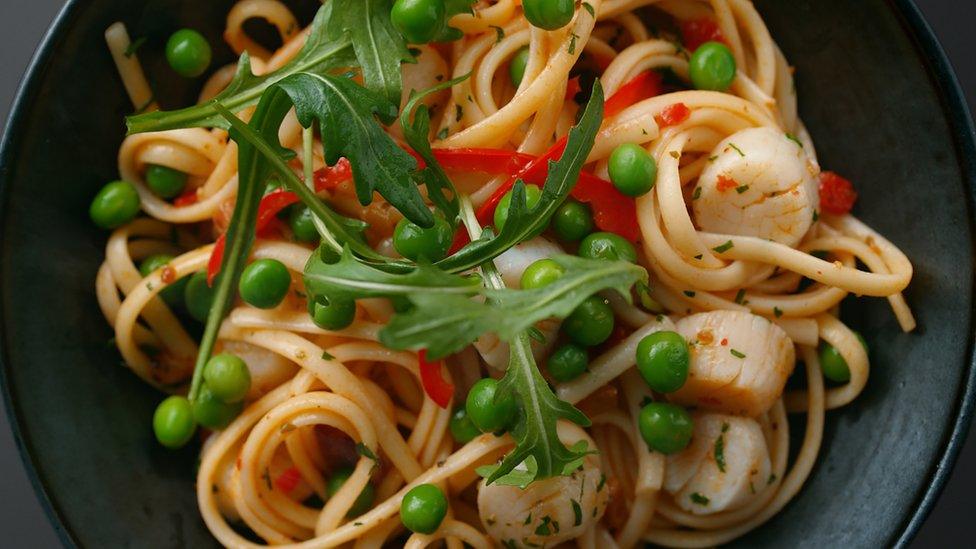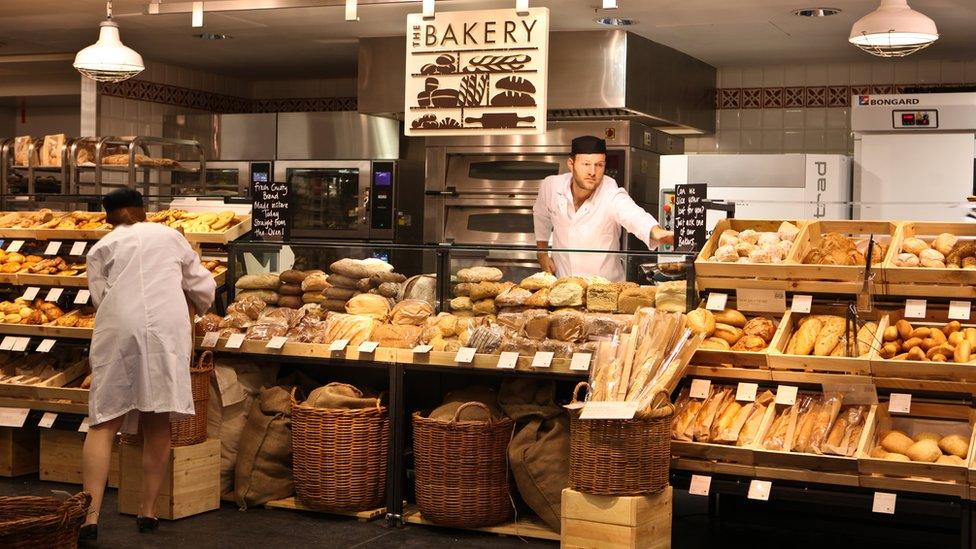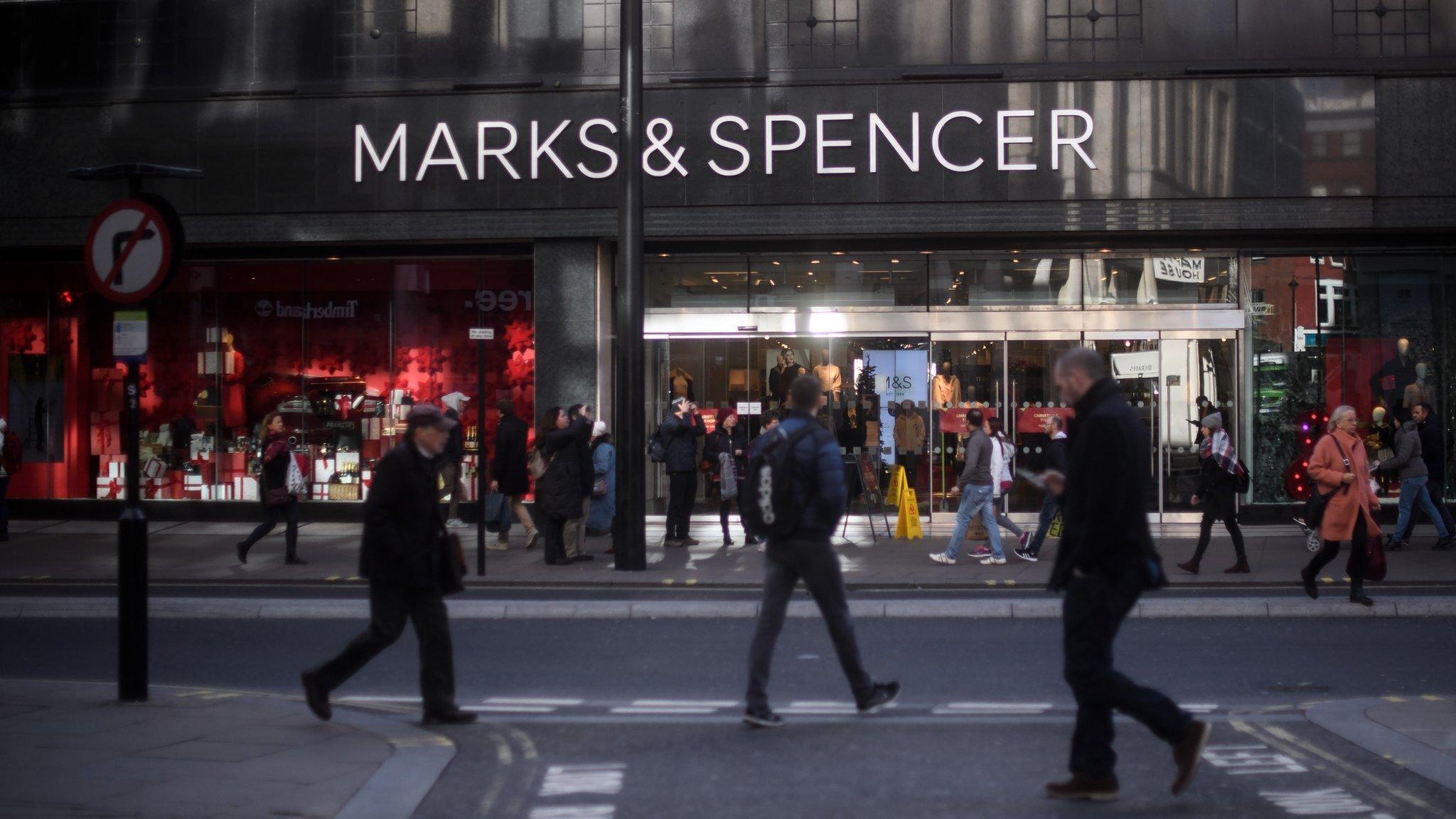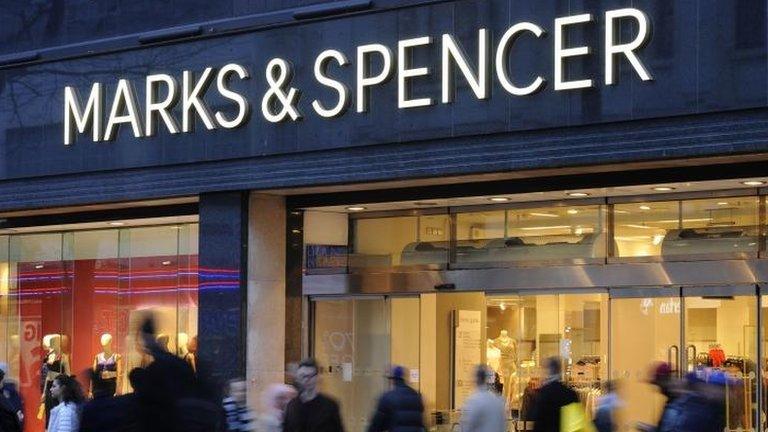M&S slows its food store expansion plan
- Published
- comments

Marks and Spencer will open fewer Simply Food shops than expected after same store food sales fell in the first six months of its financial year.
Chief executive Steve Rowe said last year the retailer would open 200 Simply Food shops over the next five years.
However, M&S said it would "reposition our food business including slowing our Simply Food store opening plan".
Like-for-like food sales, which exclude new store trade, fell 0.1% with Marks saying it faced "stronger headwinds".
However, total food sales for the period rose 4.4% driven by new shop openings.
M&S said that "hard-pressed" consumers were more aware of value and were being "careful about premium choices". It added that "headwinds facing our food business have intensified as competitors have encroached on some of our space with the rapid growth of convenience".
It also said that its profit margins on food had been hit because of rising producer costs, as well as its policy of not passing on price increases to its customers.

M&S had planned for 90 new Simply Food shops this year, half of which M&S would open itself, while the rest would be operated by franchisees.
It will now open 80 stores, split equally between M&S and its franchise partners. It also expected to open a further 90 Simply Food stores in 2018, but this will also now be reduced.
Shares in M&S fell by 1.8% to 321.9p.
Losing ground
Commenting on M&S's performance in food, Patrick O'Brien, UK research director at GlobalData Retail, said: "When you compare that to the likes of Tesco, Sainsbury's and Morrisons, whose recent like-for-likes have been around 2% plus, that's a pretty bad performance."
He said that food had been "a banker" for M&S in the past. "For it to be losing ground at a time of inflation is really quite damaging," he said.
For the group, overall total sales rose by 2.6% to £5.1bn, but pre-tax profit fell by 5.3% to £219.1m.
Like-for-like sales in clothing and homeware fell 0.7%, while total same-store sales declined 0.3%.

Analysis: Emma Simpson, BBC business correspondent
These figures aren't as bad as some had expected. An increase in full-price clothing and home sales is an encouraging sign.
But there are also now challenges in its upmarket food business, which in recent years has been a huge success story for M&S.
It had been planning to open around 200 new Simply Food stores by 2019. This is now being scaled back, which seems a sensible move.
Marks is now focusing on speeding up its existing store restructuring plans, which involve 105 "legacy stores".
Six stores, out of 30 earmarked for closure, have already ceased trading and a further two have been relocated this year. Marks says the transfer of customers to alternative stores has been much higher than expected, giving them the confidence to accelerate their plans.
Chief executive Steve Rowe wouldn't be drawn on whether this was now just the start of a much bigger store reduction plan.
A lot of retail experts think he needs to go much further than today's update, given the huge structural challenges facing the business.

The company will also speed up plans to close or reposition 105 of its stores. Mr Rowe said it would accelerate the closure of 30 M&S shops, convert 40 to Simply Food shops and relocate the remaining sites.
Mr Rowe said: "We have made good progress in remedying the immediate and burning issues at M&S I outlined last year.

M&S revealed its Christmas advert this week, starring Paddington Bear
"In clothing and home, early results are encouraging, and in International we now have a profitable and robust business.
"We recognise now that we face stronger headwinds in food, which will be addressed in the year ahead."
M&S also announced that its chief financial officer, Helen Weir, will step down. She will stay on until a successor is found.
The retailer declined to comment on current trading, but Ms Weir said the wider market view that trading in October had been difficult was "valid".
Mr Rowe said that warmer weather had affected demand for coats and jumpers, but he added: "We will trade Christmas as we always do and we're looking forward to giving our customers a treat."
- Published25 October 2017

- Published11 July 2017
